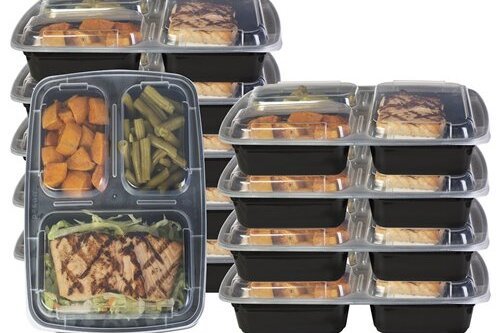Title: The Impact of Food Morality: Letting Go of “Good” and “Bad” Food Labels
When it comes to our eating habits, we often get caught up in labeling foods as “good” or “bad.” We think that certain choices make us virtuous or guilty when it comes to nutrition. But have you ever stopped to think about how these labels affect us? In this blog post, we’ll explore the consequences of assigning moral value to foods, the emotional roller coaster it creates, and why it’s time to rethink our approach.
The Guilt and Shame Trap:
Labeling foods as “bad” can lead us down a path of guilt and shame. We’ve all experienced that moment when we indulge in a so-called “bad” food and immediately feel like we did something wrong. The guilt can stick around, making us feel bad about ourselves and overshadowing the joy of eating. This emotional turmoil can harm our relationship with food and, in severe cases, lead to unhealthy eating habits.
The Illusion of Virtuousness:
On the other hand, labeling certain foods as “good” can make us feel virtuous and self-righteous when we eat them. We think we’re making better choices for our health and well-being. But this way of thinking oversimplifies nutrition and ignores our individual needs. It can also make us judgmental of others who make different food choices, creating negativity and division.
Understanding the Bigger Picture:
Nutrition is a complex science that goes beyond labeling foods as “good” or “bad.” This simplistic view doesn’t consider our overall dietary patterns, lifestyle, and personal needs. Our bodies need a variety of nutrients to thrive, and a single food choice doesn’t define our overall health.
Empowering Choices:
Instead of labeling foods, let’s focus on developing a positive and balanced relationship with what we eat. Here are some steps to guide you:
Mindful Eating: Pay attention to your body’s hunger and fullness signals. Enjoy each bite and listen to your body’s cues of satisfaction.
Moderation is Key: Instead of completely depriving yourself, aim for moderation and portion control. Treating yourself occasionally can prevent feelings of restriction and deprivation.
Nutrient-Dense Foods: Instead of fixating on labels, consider the nutritional value of foods. Choose whole, unprocessed options like fruits, vegetables, whole grains, lean proteins, and healthy fats.
Embrace Balance: Remember that balance is essential. It’s perfectly fine to enjoy foods that bring you pleasure, even if they’re considered less nutritious. Strive for a balance between indulgence and nourishment.
Let’s break free from the chains of labeling foods as “good” or “bad.” By fostering a positive and balanced relationship with food, we can enjoy eating without the burden of guilt and shame. Your worth isn’t determined by what you eat, and true nourishment goes beyond a single food choice. Embrace a holistic approach to nutrition that celebrates balance, mindfulness, and self-compassion. You deserve a healthy and joyful relationship with food.








